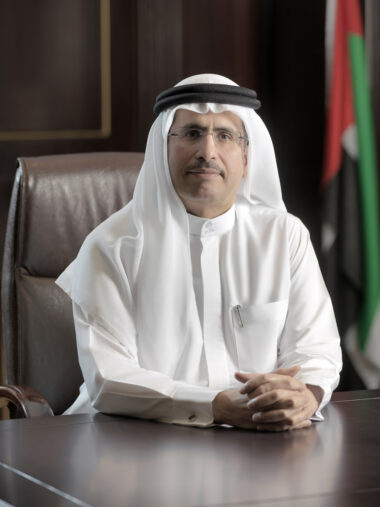Digital infrastructure is all around us, running our increasingly digital world. As summer approaches, scorching hot temperatures will see demand for electricity spike to a once-in-a-decade high, putting pressure on grid infrastructure and serving as a painful reminder that legacy grid infrastructure is critically unprepared for extreme weather events.
According to the Australian Energy Market Operator (AEMO)’s latest Summer Readiness report, Australia is expected to experience exceedingly hot and dry conditions this year, driven by El Niño. This will increase the risk of bushfires and extreme heat across the country and cause adverse effects on an already stretched infrastructure.
While the grid is resilient, Australia is going through an energy transition that is adding additional pressure on existing infrastructure and increasing the need to switch to smarter grids. This energy transition coupled with these extreme weather patterns will only exacerbate the problem. One thing is known for sure, if digital infrastructure fails, the physical world suffers.
To address this potential critical failure, today’s businesses must focus on the resilience of their systems and how businesses of all sizes can continue to function even after a critical power failure due to changing weather conditions.
Organisations must ensure that if blackouts were to occur due to grid overload, and access drops, what does that mean for their digital infrastructure? What does it mean for their business? What does it mean for their customers? What does it mean for their employees?
These are questions that have not had to be answered in the last five years and must now be answered by business leaders and CTOs to ensure that customers and employees can still access data. In recent weeks, outages have caused businesses – both large enterprises and SMBs alike – to suffer, showcasing the need for businesses to look at continuity plans to assess if they are prepared to handle grid failure.
Organisations must strategically think about their business requirements and ground themselves in the right framework to make decisions related to continuity plans. It is critical to understand where data is stored and the impacts of the system crashing.
The inability to access critical systems is a danger to a business’s bottom line, ensuring that an uninterruptible power source or an uninterruptible power supply (UPS) is included in continuity plans is smart business. If the main supply does indeed fail, the battery will take over and guarantee that the equipment will still function until the main supply can be shut down safely without losing any data or integrity of the system.
While data quality and resilience of the grid are incredibly important, from a power perspective ensuring that digital infrastructure is holding onto a business’s precious data is going to be accessible or through any interruption whether it be weather patterns or a cybersecurity breach.
There will be no sector or industry that is immune from relying on digital infrastructure to run their businesses, however, there are industries that will be adversely affected by a blackout, including healthcare, financial services, and the engine of the Australian economy, small to medium businesses. Aside from business, positive aging has meant that critical infrastructure and equipment are being stored in homes rather than in resilient systems like hospitals.
Once organisations have continuity plans, they must look to trusted professionals to review and assess scenarios that are likely to occur if they are unable to access cloud platforms or critical data. Safeguarding infrastructure is imperative, the software that measures and manages these assets is just as important to safeguard operations. The right tools predict and send alerts for issues before they become critical failures.
While cloud systems are resilient, It’s often taken for granted that they will work flawlessly, which isn’t necessarily the case, so planning for the same level of resilience for on premise data centre infrastructure or assets at the edge is a business imperative.
Corporations must be prepared to pay the price if they are not ready when adverse weather conditions strike, causing critical digital infrastructure to fail. By not preparing businesses are preparing to fail, and those that review plans now will ensure that their infrastructure will continue to function.
Ends
About us:
About Joe Craparotta
Joe Craparotta is a 30-year veteran of the IT industry who has been fortunate enough to have experience in many of the technological convergence shifts seen in the industry to date. After starting out early in his career as a founding partner of Indicium Technology Group, his entrepreneurial and inquisitive style continued to draw him towards other technology firms.
In 2005 Joe moved to Commander Communications where he spent 3 years in the enterprise space of converged voice and data. In 2008, Joe moved to APC where he progressed to the next evolution of his career: data centres, infrastructure, and sustainability. Joe has been a member of Schneider Electric’s Pacific executive team for the past ten years, taking on key leadership roles including vice president for the energy business prior to his current role as vice president for the IT business.
About Schneider Electric
Schneider’s purpose is to empower all to make the most of our energy and resources, bridging progress and sustainability for all. We call this Life Is On.
Our mission is to be your digital partner for Sustainability and Efficiency.
We drive digital transformation by integrating world-leading process and energy technologies, end-point to cloud connecting products, controls, software and services, across the entire lifecycle, enabling integrated company management, for homes, buildings, data centres, infrastructure and industries.
We are the most local of global companies. We are advocates of open standards and partnership ecosystems that are passionate about our shared Meaningful Purpose, Inclusive and Empowered values.


